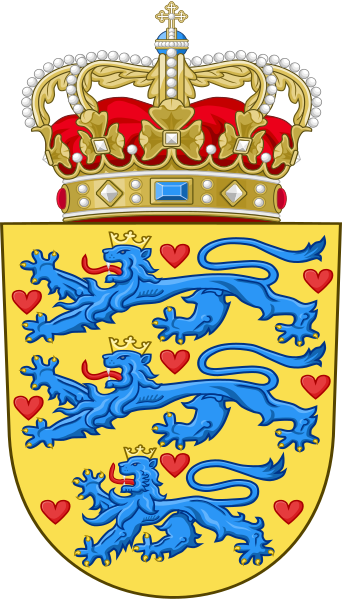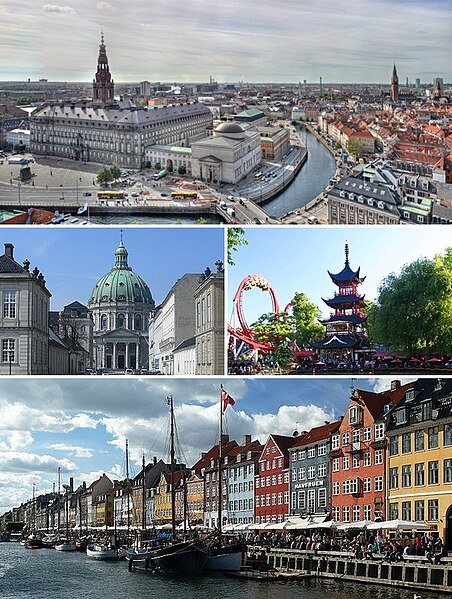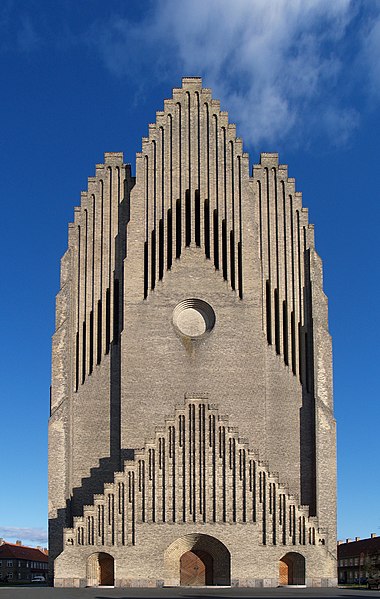Difference between revisions of "Adopting from Denmark"
(→After Adoption) |
m (→SOURCE) |
||
| (12 intermediate revisions by 2 users not shown) | |||
| Line 1: | Line 1: | ||
| − | + | {{#eimage:https://www.cia.gov/library/publications/the-world-factbook/graphics/flags/large/da-lgflag.gif|410x579px|thumb|'''The official flag.'''<BR/>Source: cia.gov.}} | |
| − | ''' | + | {{#eimage:https://www.cia.gov/library/publications/the-world-factbook/graphics/maps/da-map.gif|410x579px|thumb|'''Map.'''<BR/>Source: cia.gov.}} |
| + | {{#eimage:https://www.cia.gov/library/publications/the-world-factbook/graphics/locator/eur/da_large_locator.gif|410x579px|thumb|'''Map.'''<BR/>Source: cia.gov.}} | ||
| − | + | {{#eimage:http://upload.wikimedia.org/wikipedia/commons/thumb/5/5b/Grib_skov.jpg/638px-Grib_skov.jpg|410x579px|thumb|'''Grib Forest in the northern part of Sealand.'''<BR/>Source: Wikipedia.org.}} | |
| + | {{#eimage:https://www.cia.gov/library/publications/the-world-factbook/photo_gallery/da/images/DA_001.jpg|410x579px|thumb|''''''<BR/>Source: cia.gov.}} | ||
| − | + | {{#eimage:http://upload.wikimedia.org/wikipedia/commons/thumb/c/c6/National_Coat_of_arms_of_Denmark.svg/342px-National_Coat_of_arms_of_Denmark.svg.png|410x579px|thumb|'''The official coat of arms.'''<BR/>Source: Wikipedia.org.}} | |
| − | + | {{#eimage:http://upload.wikimedia.org/wikipedia/commons/thumb/6/68/Copenhagen_Collage2.jpg/452px-Copenhagen_Collage2.jpg|410x579px|thumb|'''Colage of Copenhagen.'''<BR/>Source: Wikipedia.org.}} | |
| + | {{#eimage:http://upload.wikimedia.org/wikipedia/commons/thumb/a/ae/Pv_jensen-klint_05_grundtvig_memorial_church_1913-1940.jpg/380px-Pv_jensen-klint_05_grundtvig_memorial_church_1913-1940.jpg|410x579px|thumb|'''PV Jensen Klint Grundtvig Memorial Church.'''<BR/>Source: Wikipedia.org.}} | ||
| − | |||
| − | + | '''Notice: As of July 14, 2014, all individuals and agencies facilitating [[international]] adoptions must be in compliance with the Intercountry [[Universal Accreditation Act]].''' | |
| − | + | The information contained on this website is for educational purposes only and is not intended to be a substitute for professional legal advice. Always seek the advice of a licensed and qualified professional. While the content of this website is frequently updated, information changes rapidly and therefore, some information may be out of date, and/or contain inaccuracies, omissions or typographical errors. | |
| − | |||
| − | = | + | =About Denmark= |
| − | + | Once the seat of Viking raiders and later a major north European power, [[Denmark]] has evolved into a modern, prosperous nation that is participating in the general political and economic integration of Europe. It joined NATO in 1949 and the EEC (now the EU) in 1973. However, the country has opted out of certain elements of the European Union's Maastricht Treaty, including the European Economic and Monetary Union (EMU), European defense cooperation, and issues concerning certain justice and home affairs. | |
| − | |||
| − | + | =Hague Convention Information= | |
| − | + | '''There are no recorded adoptions for [[Denmark]].''' To learn more, please read about [[Denmark and the Hague Convention]]. | |
| − | |||
| − | == | + | =Who Can Adopt= |
| + | |||
| + | [[Adoption]] between the United States and [[Denmark]] is governed by the Hague [[Adoption]] Convention. Therefore to [[adopt]] from [[Denmark]], you must first be found eligible to [[adopt]] by the U.S. Government. The U.S. Government agency responsible for making this determination is the Department of Homeland Security, U.S. Citizenship and Immigration Services (USCIS). To learn more, please read [[Who Can Adopt from Denmark]]. | ||
| − | |||
=Who Can Be Adopted= | =Who Can Be Adopted= | ||
| − | Because Denmark is party to the Hague Adoption Convention, children from Denmark must meet the requirements of the Convention in order to be eligible for adoption. For example, the Convention requires that Denmark attempt to place a child with a family in-country before determining that a child is eligible for intercountry adoption. In addition to Denmark's requirements, a child must meet the definition of a Convention adoptee for you to bring him or her back to the United States. | + | Because [[Denmark]] is party to the Hague [[Adoption]] Convention, children from [[Denmark]] must meet the requirements of the Convention in order to be eligible for [[adoption]]. For example, the Convention requires that [[Denmark]] attempt to place a child with a family in-country before determining that a child is eligible for intercountry [[adoption]]. In addition to [[Denmark]]'s requirements, a child must meet the definition of a Convention [[adoptee]] for you to bring him or her back to the United States. |
| + | |||
=How to Adopt= | =How to Adopt= | ||
| − | |||
| − | |||
| − | |||
| − | |||
| − | |||
| − | |||
| − | |||
| − | |||
| − | |||
| − | |||
| − | |||
==The Process== | ==The Process== | ||
| − | Because Denmark is party to the Hague Adoption Convention, adopting from Denmark must follow a specific process designed to meet the Convention's requirements. A brief summary of the Convention adoption process is given below. You must complete these steps in the following order so that your adoption meets all necessary legal requirements: | + | Because [[Denmark]] is party to the Hague [[Adoption]] Convention, adopting from [[Denmark]] must follow a specific process designed to meet the Convention's requirements. A brief summary of the Convention [[adoption]] process is given below. You must complete these steps in the following order so that your [[adoption]] meets all necessary legal requirements: |
| − | # Choose an Accredited Adoption Service Provider | + | # Choose an Accredited [[Adoption Service Provider]] |
| − | # Apply to be Found Eligible to Adopt | + | # Apply to be Found Eligible to [[Adopt]] |
# Be Matched with a Child | # Be Matched with a Child | ||
# Apply for the Child to be Found Eligible for Immigration to the United States | # Apply for the Child to be Found Eligible for Immigration to the United States | ||
| − | # Adopt the Child in Denmark | + | # [[Adopt]] the Child in [[Denmark]] |
# Bring your Child Home | # Bring your Child Home | ||
| − | + | To learn more about this process please read [[How to Adopt from Denmark]]. | |
| − | + | ||
| − | + | ||
| − | |||
| − | |||
| − | |||
| − | |||
| − | |||
| − | |||
| − | |||
| − | |||
| − | |||
| − | |||
| − | |||
| − | |||
| − | |||
| − | |||
| − | |||
| − | |||
| − | |||
| − | |||
| − | |||
| − | |||
| − | |||
| − | |||
| − | |||
| − | |||
| − | |||
| − | |||
| − | |||
| − | |||
| − | |||
| − | |||
| − | |||
| − | |||
| − | |||
| − | |||
| − | |||
| − | |||
| − | |||
| − | |||
| − | |||
| − | |||
| − | |||
| − | |||
| − | |||
| − | |||
| − | |||
| − | |||
| − | |||
| − | |||
| − | |||
| − | |||
| − | |||
| − | |||
| − | |||
| − | |||
| − | |||
| − | |||
| − | |||
| − | |||
| − | |||
| − | |||
| − | |||
| − | |||
| − | |||
| − | |||
| − | |||
| − | |||
| − | |||
| − | |||
| − | |||
| − | |||
| − | |||
| − | |||
=Traveling Abroad= | =Traveling Abroad= | ||
| Line 147: | Line 63: | ||
'''Applying for Your U.S. Passport''' | '''Applying for Your U.S. Passport''' | ||
| − | A valid U.S. passport is required to enter and leave Denmark. Only the U.S. Department of State has the authority to grant, issue, or verify U.S. passports. | + | A valid U.S. passport is required to enter and leave [[Denmark]]. Only the U.S. Department of State has the authority to grant, issue, or verify U.S. passports. To learn more please read [[Traveling Abroad in Denmark]]. |
| − | + | ||
| − | + | ||
| − | + | ||
| − | + | ||
| − | + | ||
| − | + | ||
| − | + | ||
| − | + | ||
| − | + | ||
| − | + | ||
| − | + | ||
| − | + | ||
| − | + | ||
| − | + | ||
| − | + | ||
| − | + | ||
| − | |||
=After Adoption= | =After Adoption= | ||
| − | There are no post adoption requirements for Denmark. | + | There are no post [[adoption]] requirements for [[Denmark]]. |
| − | '''What resources are available to assist families after the adoption?''' | + | '''What resources are available to assist families after the [[adoption]]?''' |
| − | Many adoptive parents find it important to find support after the adoption. Take advantage of all the resources available to your family -- whether it's another adoptive family, a support group, an advocacy organization, or your religious or community services. | + | Many [[Adoptive Parents|adoptive parents]] find it important to find support after the [[adoption]]. Take advantage of all the resources available to your family -- whether it's another adoptive family, a support group, an advocacy organization, or your religious or community services. |
| Line 187: | Line 86: | ||
| − | + | =Contact Information= | |
| − | '''U.S. Embassy in Denmark''' | + | '''U.S. Embassy in [[Denmark]]''' |
Dag Hammarskjolds Alle 24 | Dag Hammarskjolds Alle 24 | ||
| Line 200: | Line 99: | ||
| − | '''Denmark's Adoption Authority''' | + | '''[[Denmark]]'s [[Adoption]] Authority''' |
Danish Ministry of Justice | Danish Ministry of Justice | ||
| Line 212: | Line 111: | ||
| − | '''Danish Accredited Adoption Agencies''' | + | '''Danish Accredited [[Adoption Agencies]]''' |
| Line 236: | Line 135: | ||
3200 Whitehaven Street NW | 3200 Whitehaven Street NW | ||
| − | Washington, DC 20008-3683 | + | [[Washington]], DC 20008-3683 |
Tel: (202) 234-4300 | Tel: (202) 234-4300 | ||
Fax: (202) 328-1470 | Fax: (202) 328-1470 | ||
| Line 243: | Line 142: | ||
| − | Denmark also has Consulates General in Chicago and New York City. | + | [[Denmark]] also has Consulates General in Chicago and [[New York]] City. |
| Line 251: | Line 150: | ||
CA/OCS/CI | CA/OCS/CI | ||
SA-17, 9th Floor | SA-17, 9th Floor | ||
| − | Washington, DC 20522-1709 | + | [[Washington]], DC 20522-1709 |
Tel: 1-888-407-4747 | Tel: 1-888-407-4747 | ||
E-mail: AskCI@state.gov | E-mail: AskCI@state.gov | ||
| Line 264: | Line 163: | ||
==SOURCE== | ==SOURCE== | ||
| − | '''Intercountry Adoption, Bureau of Consular Affairs. U.S. Department of State Country Information''' | + | '''Intercountry [[Adoption]], Bureau of Consular Affairs. U.S. Department of State Country Information''' adoption.state.gov/country_information/country_specific_info.php?country-select=denmark |
| + | |||
| + | [[Category: International Adoption]] | ||
Latest revision as of 04:16, 18 February 2018
Notice: As of July 14, 2014, all individuals and agencies facilitating international adoptions must be in compliance with the Intercountry Universal Accreditation Act.
The information contained on this website is for educational purposes only and is not intended to be a substitute for professional legal advice. Always seek the advice of a licensed and qualified professional. While the content of this website is frequently updated, information changes rapidly and therefore, some information may be out of date, and/or contain inaccuracies, omissions or typographical errors.
Contents
About Denmark
Once the seat of Viking raiders and later a major north European power, Denmark has evolved into a modern, prosperous nation that is participating in the general political and economic integration of Europe. It joined NATO in 1949 and the EEC (now the EU) in 1973. However, the country has opted out of certain elements of the European Union's Maastricht Treaty, including the European Economic and Monetary Union (EMU), European defense cooperation, and issues concerning certain justice and home affairs.
Hague Convention Information
There are no recorded adoptions for Denmark. To learn more, please read about Denmark and the Hague Convention.
Who Can Adopt
Adoption between the United States and Denmark is governed by the Hague Adoption Convention. Therefore to adopt from Denmark, you must first be found eligible to adopt by the U.S. Government. The U.S. Government agency responsible for making this determination is the Department of Homeland Security, U.S. Citizenship and Immigration Services (USCIS). To learn more, please read Who Can Adopt from Denmark.
Who Can Be Adopted
Because Denmark is party to the Hague Adoption Convention, children from Denmark must meet the requirements of the Convention in order to be eligible for adoption. For example, the Convention requires that Denmark attempt to place a child with a family in-country before determining that a child is eligible for intercountry adoption. In addition to Denmark's requirements, a child must meet the definition of a Convention adoptee for you to bring him or her back to the United States.
How to Adopt
The Process
Because Denmark is party to the Hague Adoption Convention, adopting from Denmark must follow a specific process designed to meet the Convention's requirements. A brief summary of the Convention adoption process is given below. You must complete these steps in the following order so that your adoption meets all necessary legal requirements:
- Choose an Accredited Adoption Service Provider
- Apply to be Found Eligible to Adopt
- Be Matched with a Child
- Apply for the Child to be Found Eligible for Immigration to the United States
- Adopt the Child in Denmark
- Bring your Child Home
To learn more about this process please read How to Adopt from Denmark.
Traveling Abroad
Applying for Your U.S. Passport
A valid U.S. passport is required to enter and leave Denmark. Only the U.S. Department of State has the authority to grant, issue, or verify U.S. passports. To learn more please read Traveling Abroad in Denmark.
After Adoption
There are no post adoption requirements for Denmark.
What resources are available to assist families after the adoption?
Many adoptive parents find it important to find support after the adoption. Take advantage of all the resources available to your family -- whether it's another adoptive family, a support group, an advocacy organization, or your religious or community services.
Here are some good places to start your support group search:
Adoption Services Support Groups for Adopting Persons
North American Council on Adoptable Children
NOTE: Inclusion of non-U.S. Government links does not imply endorsement of contents.
Contact Information
U.S. Embassy in Denmark
Dag Hammarskjolds Alle 24 2100 Copenhagen Tel: +45-3341 7100 Fax: +45-3538 9616 E-mail: CopenhagenACS@state.gov Web site: U.S. Embassy in Denmark
Danish Ministry of Justice Department of Family Law Kristineberg 6 2100 Copenhagen Tel: +45-7268 8000 Fax: +45-7268 8001 Email: familiestyrelsen@famstyr.dk Web site: Danish Ministry of Justice
Danish Accredited Adoption Agencies
AC Boernehjaelp
Elkjaervej 31 8230 Aabyhoj TEL: +45-8612 6522 Fax: +45-8619 7853 Email: adoption@a-c.dk Web site: www.a-c.dk
DanAdopt
Hovedgaden 24 3460 Birkerod TEL: +45-4581 6333 Fax: +45-4581 7482 Email: mail@danadopt.dk Web site: www.danadopt.dk
Royal Danish Embassy
3200 Whitehaven Street NW Washington, DC 20008-3683 Tel: (202) 234-4300 Fax: (202) 328-1470 E-mail: wasamb@.um.dk Web site: Royal Danish Embassy
Denmark also has Consulates General in Chicago and New York City.
Office of Children's Issues
U.S. Department of State CA/OCS/CI SA-17, 9th Floor Washington, DC 20522-1709 Tel: 1-888-407-4747 E-mail: AskCI@state.gov Web site: U.S. Department of State
U.S. Citizenship and Immigration Services (USCIS)
For questions about immigration procedures, call the National Customer Service Center (NCSC) 1-800-375-5283 (TTY 1-800-767-1833)
SOURCE
Intercountry Adoption, Bureau of Consular Affairs. U.S. Department of State Country Information adoption.state.gov/country_information/country_specific_info.php?country-select=denmark







